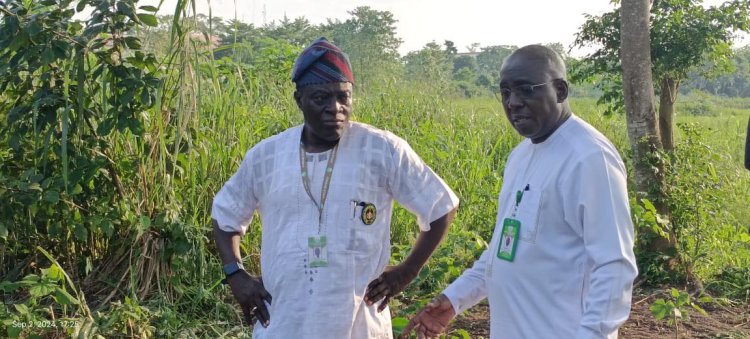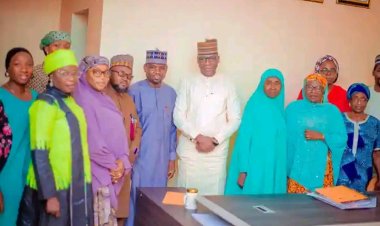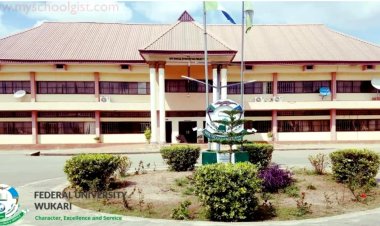FUNAAB Partners with CARNCD to Combat Non-Communicable Diseases
The Federal University of Agriculture, Abeokuta (FUNAAB), under the visionary leadership of Vice-Chancellor Prof. Babatunde Kehinde, is set to collaborate with the Governing Board of the Centre for the Advancement of Research in Non-Communicable Diseases (CARNCD).

Sent by Copilot:
The Federal University of Agriculture, Abeokuta (FUNAAB), under the visionary leadership of Vice-Chancellor Prof. Babatunde Kehinde, is set to collaborate with the Governing Board of the Centre for the Advancement of Research in Non-Communicable Diseases (CARNCD). This initiative aims to actualize the vision of Chief Promoter and former Nigerian President, Chief Olusegun Obasanjo, GCFR.

During a visit to the site on September 2, 2024, Prof. Kehinde expressed the University’s commitment to reviving the Centre with the backing of Chief Obasanjo. He emphasized the urgent need to address Non-Communicable Diseases (NCDs), which he described as a significant threat to healthy living. “The site is home to a variety of medicinal plants cultivated specifically for managing NCDs such as diabetes, hypertension, and arthritis,” Prof. Kehinde noted.
Accompanying the Vice-Chancellor were Prof. Babatunde Idowu, former Vice-Chancellor of Glorious Vision University (GVU), Ogwa, Edo State, and Dr. Akindele Adeyi from the Department of Pure and Applied Zoology (PAZ), College of Biosciences (COLBIOS). Among the medicinal plants thriving at the Centre are King of Bitters, turmeric, ginger, moringa, miracle plant, and scent leaves.
Chief Obasanjo, who serves as the Centre’s Patron in Nigeria, underscored the critical need for early detection and treatment of NCDs. “Non-communicable diseases are silent killers, and late diagnosis contributes to their high morbidity and mortality rates. Many Nigerians are unknowingly living with these conditions. Early diagnosis and access to effective treatments can significantly improve their quality of life,” he stated.
NCDs, including diabetes and cardiovascular diseases like hypertension, are now the leading causes of disability and death globally. This collaboration marks a significant step towards addressing these health challenges and improving the well-being of Nigerians.

 UBA CHIDINMA
UBA CHIDINMA 



